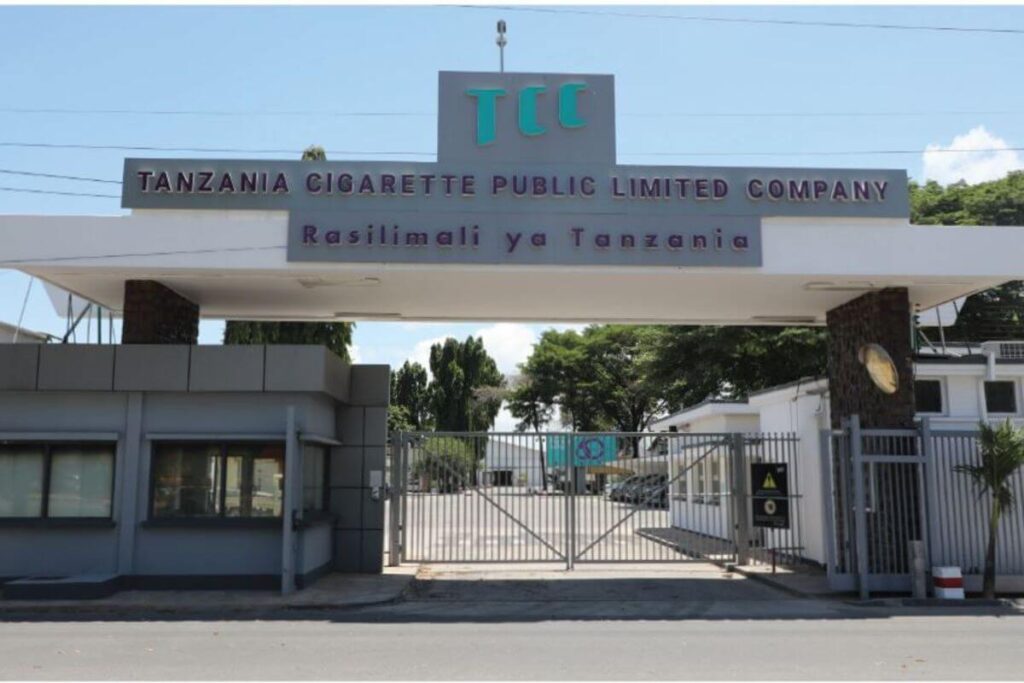Shareholders of the Tanzania Cigarette Public Limited Company (TCC Plc) are set to smile all the way to the bank next month following a recommendation by the company’s board of directors to the company to pay a final dividend of 370/- per share, bringing the total dividend for the year 2022 to 670/-.
If shareholders approve the final dividend proposal at the general meeting which is scheduled to take place on Friday, April 21, 2023, the dividend is slated to be paid around May 2023.
The Dar es Salaam Stock Exchange (DSE) listed company paid an interim dividend of 300/- per share during the financial year 2020/2021.
According to the company’s results, TCC recorded an impressive 10.8% increase in net profit to 69.2bn/ in 2022 as a result of an 8.9% increase in revenue while Gross profit margin improved slightly to 56% in2022 from 55% recorded in the same period of 2021.
Operating profit slightly improved from 86.3bn/- to 100.8bn/- mainly due to 1.8% decrease in total expenditures from 85.6bn/- in 2021 to 84.1bn/- in 2022.
Over the past five years, the company’s revenue has grown by 2.96% CAGR from 294bn/- in 2018 to 341bn/- while expenses have been rising faster than revenue.

In the last five years, TCC’s cost of sales has increased by 3.15% CAGR, and the negative difference with revenue growth led to a slight bite off the gross margin, from 56.4% in 2018 to 56% in 2022.
Due to the effect of COVID-19 in 2020 TCC’s revenue dropped by 9.8% to 279bn/- as a result net income went down by 30%, marking the least net profit in the last ten years.
Return on Equity went up 1400bps to 43% in the financial year 2022, while return on assets gained 300bps to 25%. Indicating an effective asset utilization. Except for the year of the pandemic, in 2020, the ROA and ROE for TCC has been consistently rising since 2018.
Currently the cigarette market is facing pressure as there are continuous health campaign to persuade people to stop smoking to prevent lung and respiratory diseases, as well as climatic changes.
The ongoing campaigns will likely put pressure on TCC revenue and the tax regime on tobacco and associated products, adopted by the authorities.
Moreover, the campaign on health matters has led to the introduction of electronic cigarettes, which got a tax relief in the most recent tax amendments last year.
According to the Alpha Capital Head of Research and Analytics Imani Muhingo, despite maintaining a commendable profit history and consistently delivering dividends to its shareholders, the stock price of TCC has experienced a period of stagnation over the past five years.
“A significant portion of trade activities involving TCC shares occur through prearranged block transactions at a considerably discounted rate, averaging at 6,000/-, while the official market price on the normal board remains at 17,000/-. In 2022 alone, a total of 438,658 TCC shares exchanged hands in the market, resulting in a generated revenue of 2.39bn/-,” Muhingo said.
Muhingo said that since the start of the year 2023, no transaction involving TCC shares has passed through the market adding that there are 23,000 share on outstanding offers on the market, without a single bid.
“DSE Trading Rules direct that if a counter stays 21 business days without registering a transaction, all price determination restrictions are waived, while an independent valuation report is used to justify a new market price. Hopefully this shall materialize for DSE since it has been more than two months since a transaction was recorded on the counter,” he said.
DSE Trading Rules as well as market circuit breakers were implemented to curb excessive volatility, which has resulted in TCC price stagnation.
“The maximum price movement allowed by trading rules for one trading session is 5%. For consideration of a new closing price, which will be the weighted average price for that session, a counter must trade at least 0.0025% of its total shares in that single session. To lower the price from 17,000/- to 16,200/-, an investor will be required to have about 42.5m/-. Investors already have access to the counter at lower prices through prearranged transactions, so there is no interest in the shares at market prices,” Muhingo noted.







